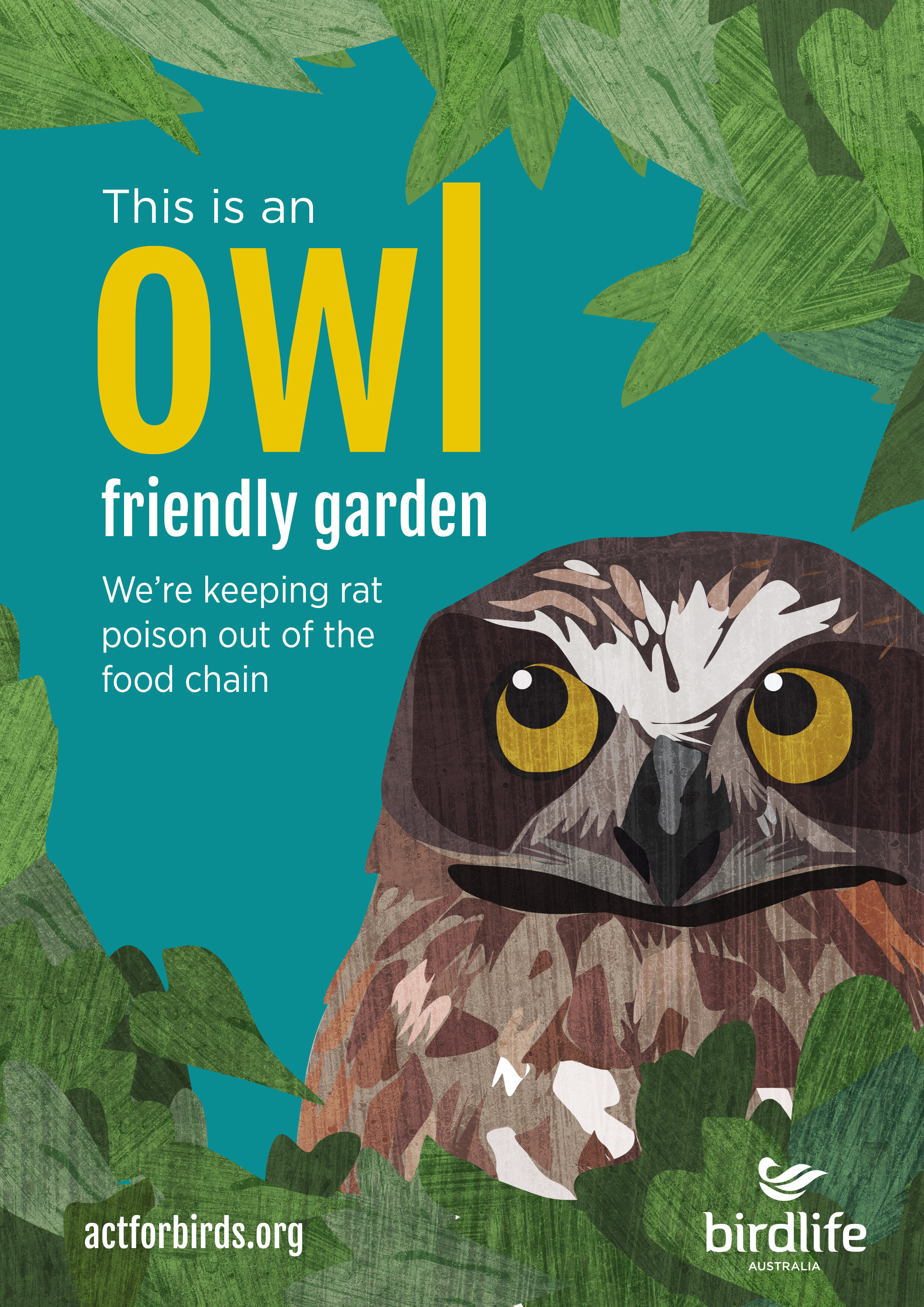What do do if you find a sick or injured bird?
Even if you mean well, touching wild animals can be dangerous. Owls and other birds of prey have sharp
If you come across a sick or injured owl or other bird of prey, the most important thing to do is to call your State or Territory’s wildlife rescue hotline.
Make your house and garden less friendly for rodents:
seal potential roof/wall cavity access points that rodents might be using
pick up any fallen fruit,
ensure excess pet food isn’t accessible,
rodent-proof chook pens and aviaries,
replace rat-friendly palms with owl-friendly natives, and
tidy up garden waste and limit access to compost heaps
Encourage native predators:
plant native trees, and
install nest boxes for owls to breed in.
Reduce dependence on poison baits:
consider other, non-poison pest control, like snap traps,
only put out baits when you actually need to,
read the labels on any poisons you buy and make the change to first generation anticoagulant rodenticides (FGARs) or other alternatives. Look for active ingredients like Warfarin (Ratsak Double-strength) and Coumatetralyl (Racumin) or natural constituents like Sodium Chloride (Ratsak Natural)
leave second generation anticoagulant rodenticides (SGARs) on the shelf.
To learn more about bird-friendly rodent control, download this great brochure developed by BirdLife Western Australia.
Encourage others to join you:
Share the facts about SGARs with your friends, family and neighbours
Email your local council, ask how they manage SGARs in your community
Sign our petition to get SGARs out of Bunnings
Download and print your Owl Friendly Garden poster and put it in your front window or fence to show that your garden is poison free and a safe haven for birds.
Return to Rat Poisons Homepage

